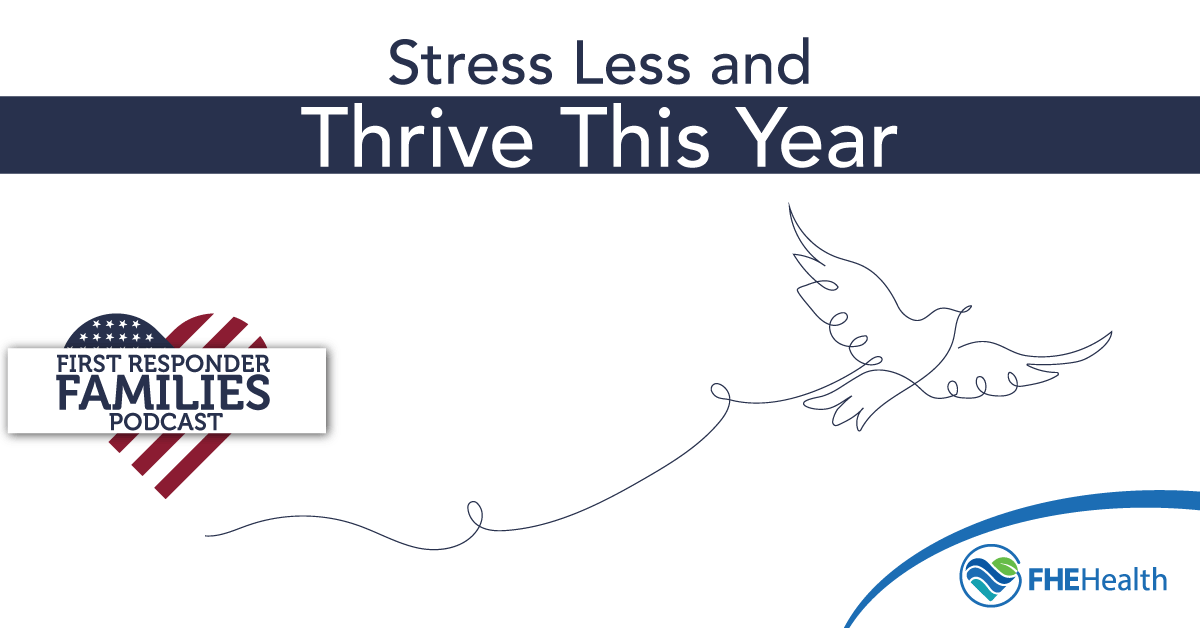
Episode 10 of The First Responder Families Podcast, with host Ivona Bhahda, Director of Family Services at FHE Health, answered this question: How do you stress less and celebrate more over the holidays? For highlights from the podcast, including some practical tips for managing holiday stress, read on.
The Most Stressful Time of the Year
Bhahda kicked off the conversation by observing that the period from November 20 to January 2 is “considered the most stressful time of the year,” thanks to stressors like busier schedules, financial strain, and social expectations.
“And for some reason that we will explore later,” Bhahda added, “there is this emotional weight … So, my invitation to you is to reflect on some of these stressors or triggers and offer a mix of practical advice and heartfelt support to help you embrace the season with more calm, joy, and resilience, if needed.”
How We Experience Stress and Tips for Managing It
If the goal is to manage stress rather than let stress manage us, it can be helpful to understand some of the common ways that humans respond to stress.
The Human Pressure Cooker
Here, Bhahda used the illustration of a pressure cooker to describe how stress can build up in a person, negatively affecting their mental and emotional health:
Just like a regular kitchen aid pressure cooker, [our human] pressure cooker can really explode if you don’t let go of the steam in the right time. So, in our human pressure cooker experience, we need to be able to recognize when we are under pressure.
How do we recognize that we’re under pressure? “Check in” with yourself, Bhahda said, and “really honestly check in with ourselves.” Next, look for signs like the following:
- Feelings of overwhelm or irritability
- A lot of inner dialogue
- A lot of “shoulds” like “I should be hosting Thanksgiving dinner” or “I should be inviting everybody to my home”
Reframing “Shoulds” and Setting Realistic Goals
Once you’ve identified those “shoulds” that are adding to the pressure, then you can begin to reframe these expectations. Bhahda recommended setting “small realistic goals for the season based on … what is realistic and what is good enough.”
Questions for Self-Reflection When Feeling “Compelled”
Bhahda also invited listeners to engage in some self-reflection when they notice they’re feeling “compelled” to do something over the holidays. Some questions to ask oneself:
- What happens when I say “yes” to everything?
- Do I feel resentful or burned out by the time I get to the fun part of the holidays?
- What is driving my need to meet every expectation?
The Bandwidth Strategy
When so many requests and opportunities vie for your time, how do you decide what to take on and what not to? How do you evaluate when to let go of a commitment or take a new one on?
This is where Bhahda introduced listeners to a helpful tool that she called “the Bandwidth Strategy.” What is it, and how does it work? Tune in to Episode 10 for answers.






